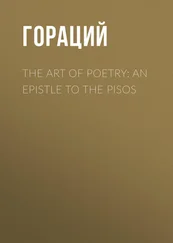Charles Gore - St. Paul's Epistle to the Ephesians - A Practical Exposition
Здесь есть возможность читать онлайн «Charles Gore - St. Paul's Epistle to the Ephesians - A Practical Exposition» — ознакомительный отрывок электронной книги совершенно бесплатно, а после прочтения отрывка купить полную версию. В некоторых случаях можно слушать аудио, скачать через торрент в формате fb2 и присутствует краткое содержание. Издательство: Иностранный паблик, Жанр: foreign_religion, foreign_antique, foreign_prose, на английском языке. Описание произведения, (предисловие) а так же отзывы посетителей доступны на портале библиотеки ЛибКат.
- Название:St. Paul's Epistle to the Ephesians: A Practical Exposition
- Автор:
- Издательство:Иностранный паблик
- Жанр:
- Год:неизвестен
- ISBN:нет данных
- Рейтинг книги:4 / 5. Голосов: 1
-
Избранное:Добавить в избранное
- Отзывы:
-
Ваша оценка:
- 80
- 1
- 2
- 3
- 4
- 5
St. Paul's Epistle to the Ephesians: A Practical Exposition: краткое содержание, описание и аннотация
Предлагаем к чтению аннотацию, описание, краткое содержание или предисловие (зависит от того, что написал сам автор книги «St. Paul's Epistle to the Ephesians: A Practical Exposition»). Если вы не нашли необходимую информацию о книге — напишите в комментариях, мы постараемся отыскать её.
St. Paul's Epistle to the Ephesians: A Practical Exposition — читать онлайн ознакомительный отрывок
Ниже представлен текст книги, разбитый по страницам. Система сохранения места последней прочитанной страницы, позволяет с удобством читать онлайн бесплатно книгу «St. Paul's Epistle to the Ephesians: A Practical Exposition», без необходимости каждый раз заново искать на чём Вы остановились. Поставьте закладку, и сможете в любой момент перейти на страницу, на которой закончили чтение.
Интервал:
Закладка:
As soon as it was over St. Paul left Ephesus not to return there again. But on his way back to Jerusalem he came not to Ephesus but to Miletus, and sending for the Ephesian presbyters thither, he made them a farewell speech[ 48 48 Acts xx. 17 ff.
], which is in conspicuous harmony with the features of his later Epistle to the Ephesians. Already the doctrines of a divine purpose or counsel now revealed, of the Church in general as the object of the divine self-sacrifice and love, and of the Holy Ghost as accomplishing her sanctification and developing her structure, appear to be prominent in his mind, and to have become familiar topics with the Ephesian Christians. 'I shrank not from declaring unto you the whole counsel of God. Take heed unto yourselves and to all the flock, in the which the Holy Ghost hath made you bishops, to feed the church of God, which he purchased with his own blood… And now I commend you to God, and to the word of his grace, which is able to build you up, and to give you the inheritance among all them that are sanctified.' These words from St. Paul's speech to the Ephesian presbyters are in remarkable affinity with the teaching of our epistle.
v
We have been assuming that this epistle was addressed to Ephesus, but there are reasons to believe that it was not addressed to Ephesus only, but rather generally to the churches of the Roman province of Asia, of which Ephesus was the chief. The reasons for thinking this are partly internal to the epistle. St. Paul's personal relations to individual Ephesian Christians must have been many and close, and we know his habit of introducing personal allusions and greetings into his epistles; but the so-called Epistle to the Ephesians is destitute of them altogether, contrasting in this respect even with the Epistle to the Colossians, written at the same time to a church which St. Paul himself never visited. This would be a most inexplicable fact if the Epistle to the Ephesians were really a letter to this one particular church. More than this, St. Paul speaks in several passages in a way which implies that he and those he wrote to were dependent on what they had heard for mutual knowledge – 'having heard of the faith in the Lord Jesus that is among you' – 'if so be ye have heard of the dispensation of the grace of God which was given me to youward.' Such language is much more natural if he is writing to others besides the Ephesians. And this evidence internal to the substance of the epistle coincides with evidence of the manuscripts. Very early manuscripts, some of those which remain to us and some which are reported to us by primitive scholars, omit the words 'in Ephesus' from St. Paul's opening greeting 'To the saints and faithful brethren which are [in Ephesus].' This fact, coupled with the absence of personal reminiscences in the epistle, has suggested the idea that it was in fact a circular letter to the saints and faithful brethren at a number of churches of the Roman province of Asia, and that where the words 'in Ephesus' stand in our text, there was perhaps a blank left in the epistle as St. Paul dictated it, which was intended to be filled up in each church where it was read. This is a view which has to a certain extent a special interest for us in Westminster because, if it was first suggested by the Genevan commentator Beza, it was elaborated by Archbishop Ussher, who is identified with our Abbey by residence and by the memorable record of his entombment in our abbey church with Anglican rites by the command of Cromwell. It follows naturally from such a view that when St. Paul writes to the Colossians and bids them send their letter to Laodicea, and read that which comes from Laodicea[ 49 49 Col. iv. 16.
], the letter which they should expect from Laodicea would be none other than the so-called Epistle to the Ephesians which was to be read by them as well as the other Asiatic Christians.
vi
Enough perhaps has now been said to give a general idea of the conditions under which this great epistle was written; and the topics of the epistle have been already indicated. Its central theme is that of the great catholic society, the renovated Israel, the Church of God. In this catholic brotherhood St. Paul sees the realization of an age-long purpose of God, the fulfilment of a long-secret counsel, now at last disclosed to His chosen prophets. He sees nothing incongruous in finding in the yet young and limited societies of Christian disciples the consummation of the divine purpose for the world, for these societies represent the breaking down of all barriers and the bringing of all men to unity with one another through a recovered unity with God, through Christ and in His Spirit. Therefore the work which the Church is to accomplish is nothing less than a universal work, a work not even limited to humanity; it is the bringing back of all things visible or invisible into that unity which lies in God's original purpose of creation. St. Paul long ago had spoken to the Corinthians of a spiritual wisdom which they were not yet ready to listen to. But now St. Paul seems to feel – for reasons which we have tried in part to interpret – that the time has come when all the depth and richness of the divine secret may be spoken out. No wonder that the subject stirs his imagination and gives to his whole tone an uplifting and a glory without parallel in his other writings. And yet it would be altogether false to attach to this epistle any associations such as are commonly connected with flights of imagination or the language of rhapsody. For the epistle has the most direct bearing on matters of practical life. If St. Paul glorifies the Christian ideal it is in order that all that weight of glory may be brought to bear upon the Asiatic Christians to force them to see that their personal and social conduct must have a purity, a liberality, a wisdom, a love, a power, commensurate with the greatness of those motives which are acting upon them in their new Christian state.
THE EPISTLE TO THE EPHESIANS
CHAPTER I. 1-2
Salutation
St. Paul begins this, in common with his other epistles, with a brief salutation to a particular church or group of churches, in which is expressed in summary the authority he has for writing to them, the light in which he regards them, and the central wish for them which he has in his heart.
Paul, an apostle of Christ Jesus through the will of God, to the saints which are at Ephesus, and the faithful in Christ Jesus: Grace to you and peace from God our Father and the Lord Jesus Christ.
Here, then, we have three compressed thoughts.
1. The particular person Paul writes this letter because he is not only a believer in Christ but also an 'apostle of Christ Jesus through the will of God.' The word apostle is a more or less general word for a delegate, as when St. Paul speaks of the 'apostles (or messengers) of the churches[ 50 50 2 Cor. viii. 23.
];' but by an apostle in its highest sense, 'an apostle of Jesus Christ,' St. Paul meant one of those, originally twelve in number, who had received personally from the risen Christ a particular commission to represent Him to the world. This particular and personal commission he claimed to have received, in common with the twelve, though later than they – at the time of his conversion. 'Am I not an apostle?' he cries. 'Have I not seen Jesus our Lord[ 51 51 1 Cor. ix. 1.
]?' 'He appeared to me also as unto one born out of due time[ 52 52 1 Cor. xv. 8.
].' 'In nothing was I behind the very chiefest apostles[ 53 53 2 Cor. xii. 11.
].' And as his claim to the apostolate was challenged by his Judaizing opponents he had to insist upon it, to insist that it is not a commission from or through Peter and the other apostles, or dependent upon them for its exercise, but a direct commission, like theirs, from the Head of the Church Himself. He is, he writes to the Galatians, 'Paul, an apostle, not from men, nor (like those subsequently ordained by himself or the other apostles, like a Timothy, or a Titus, or like the later clergy) through man,' but directly through, as well as from, the risen Jesus whom his eyes had seen, and His eternal Father[ 54 54 Gal. i. 1.
].
Интервал:
Закладка:
Похожие книги на «St. Paul's Epistle to the Ephesians: A Practical Exposition»
Представляем Вашему вниманию похожие книги на «St. Paul's Epistle to the Ephesians: A Practical Exposition» списком для выбора. Мы отобрали схожую по названию и смыслу литературу в надежде предоставить читателям больше вариантов отыскать новые, интересные, ещё непрочитанные произведения.
Обсуждение, отзывы о книге «St. Paul's Epistle to the Ephesians: A Practical Exposition» и просто собственные мнения читателей. Оставьте ваши комментарии, напишите, что Вы думаете о произведении, его смысле или главных героях. Укажите что конкретно понравилось, а что нет, и почему Вы так считаете.













детально рассмотрела важный вопрос и предоставила читателям полезные
знания. Очень захватывающая познавательная и увлекательная для меня,
как автора статей на тему онлайн-игр на данной платформе https://1win-russia.net/ , однако это далеко не единственное из моих интересов!
В частности меня заинтересовал
научный метод к рассмотрению
этой проблемы и ясное изложение главных моментов.
Статья очевидно осуществила значительную работу по сбору и анализе информации, что делает её ценным ресурсом знаний.
Отличное выполнение!